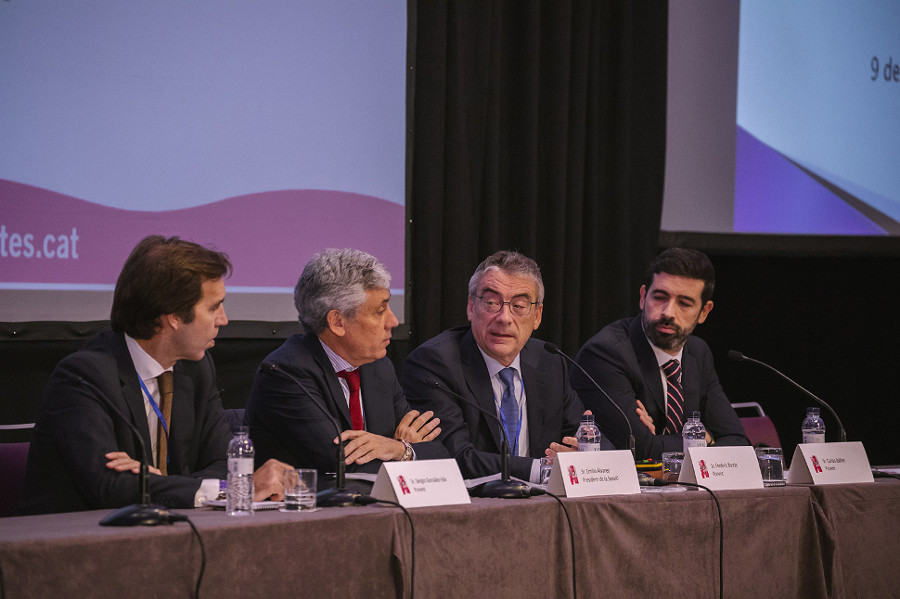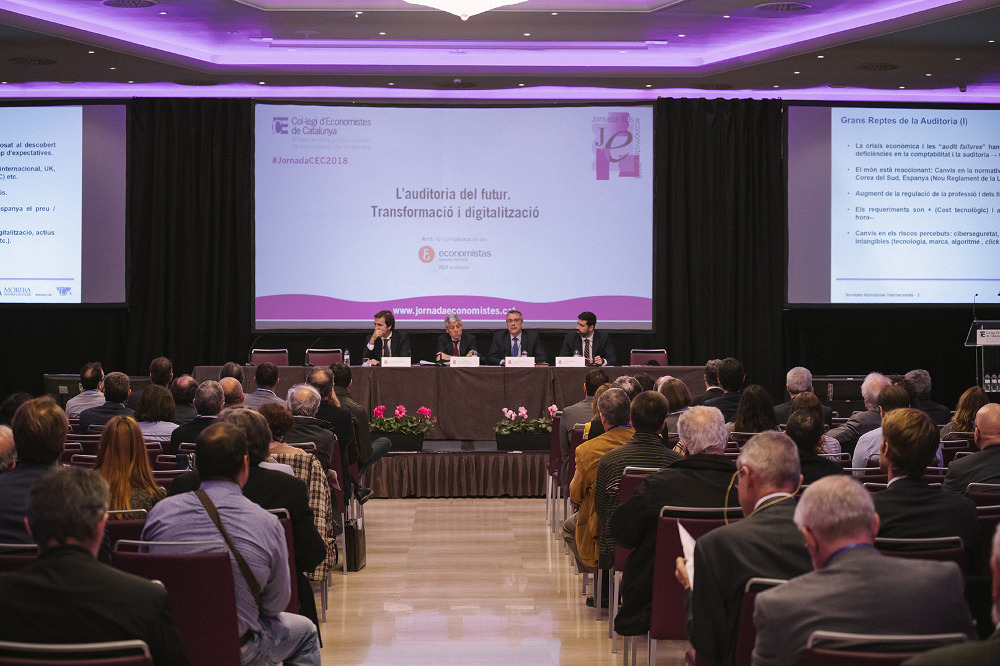Frederic Borràs urges audit regulatory bodies to adapt to the current technological environment
 Frederic Borràs, recognised auditor and corresponding academician of the Royal European Academy of Doctors-Barcelona 1914 (RAED), participated in the 23rd Annual Conference of the Association of Economists of Catalonia, which was held in Barcelona on November 9. Borràs presented the paper “L’auditoria del futur: transformació i digitalització” (The audit of the future: transformation and digitalization), where he explained what current audit standards should be reformulated in a business world in deep change influenced by technology.
Frederic Borràs, recognised auditor and corresponding academician of the Royal European Academy of Doctors-Barcelona 1914 (RAED), participated in the 23rd Annual Conference of the Association of Economists of Catalonia, which was held in Barcelona on November 9. Borràs presented the paper “L’auditoria del futur: transformació i digitalització” (The audit of the future: transformation and digitalization), where he explained what current audit standards should be reformulated in a business world in deep change influenced by technology.
“The economic and business world are undergoing a profound transformation, and the professional panorama of auditing that responds to the challenges of rethinking the future as a result of changes in the environment cannot be different. Changes in the profession have come about as a result of financial scandals that have forced the situation to be reconsidered, an example is the introduction of mandatory auditing for companies listed in the United States as a result of the crisis of 29. Now we must make another approach”, explained the academician.
Former business associate of KPGM, president of the advisory board of Morera Asesores & Auditores and member of the international management council of IECnet, Borràs considered that the audit addresses several specific challenges, but above all must respond to the new technological environment: iCloud, artificial intelligence, robotics, big data, blockchain… “All this requires a different audit, because the current regulations are based on risks and samples, although nowadays it’s as simple as usual to analyse the entire population with the technological means that we have available and at a very affordable price. In addition, the available technology allows to incorporate the analysis of information that is generated outside the company, but is accessible even to the network”, added Borràs.
The academician considered that the audit should advance in the application of the so-called Data & Analytics to analyse and convert data into knowledge and value to help organizations, to validate financial statements and manage risks and to reinforce and improve existing processes through the development of different technological tools. “The problem we have is that technological changes are going much faster than the regulations and the challenge we must achieve is to adapt the regulations to this new reality”, he concluded.






